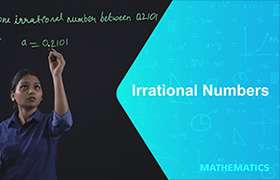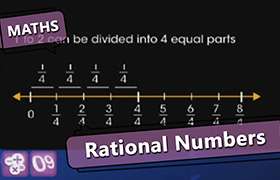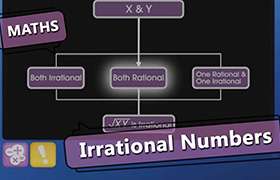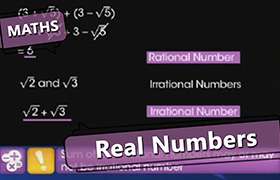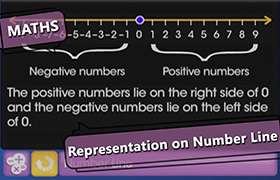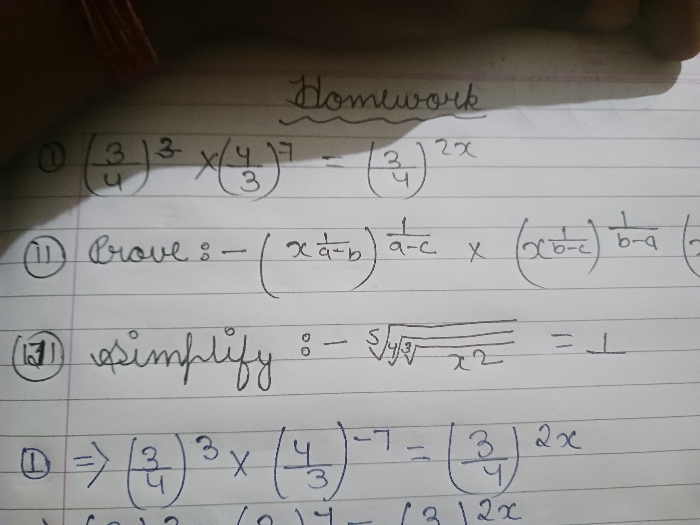CBSE Class 9 Answered
Using the principle of mathematical induction prove that for all n belongs to N: n(n+1)(n+2)(n+3) is a multiple of 24
Asked by Theodosia Lourdes | 08 May, 2011, 03:55: AM
The given statement is:
P(n): n(n+1)(n+2)(n+3) is a multiple of 24
P(1) = 1(1+1)(1+2)(1+3) = 1.2.3.4 = 24, a multiple of 24
Let P(m) be true.
That is, m(m+1)(m+2)(m+3) is a multiple of 24
m(m+1)(m+2)(m+3) = 24k
Now, P(m+1) = (m+1)(m+2)(m+3)(m+4) = m (m+1)(m +2)(m +3) + 4 (m+1)(m +2)(m +3)
= 24 k + 4 (m+1)(m +2)(m +3) ... (1)
Now, if (m+1)(m +2)(m +3) is a multiple of 6, then P(m+1) will be a multiple of 24.
So, by principle of mathematical induction, we will prove that (m+1)(m +2)(m +3) is a multiple of 6.
Let Q(m): (m+1)(m +2)(m +3) is a multiple of 6
Q(1) = 2.3.4 = 24, a multiple of 6
Let Q(t) be true.
(t+1)(t +2)(t +3) = 6p
Now, we will prove that Q(t+1) is true.
(t+2)(t +3)(t +4) = (t+2)(t +3)(t +3+1) = (t+2)(t +3)(t +1) + (t+2)(t +3)(3)
= 6p + 3 (a multiple of 2)
= 6p + a multiple of 6
= 6q
Thus, Q(t+1) is true.
Therefore, by principle of mathematical induction, (m+1)(m +2)(m +3) is a multiple of 6.
From (1), P(m+1) = 24 k + 4 (m+1)(m +2)(m +3)
= 24 + 4 (a multiple of 6)
= a multiple of 24
Thus, P(m+1) is true.
Hence, by principle of mathematical induction, n(n+1)(n+2)(n+3) is a multiple of 24.
Answered by | 11 May, 2011, 09:58: AM
Application Videos
Concept Videos
CBSE 9 - Maths
Asked by monika.vns14 | 18 Apr, 2024, 05:15: PM
CBSE 9 - Maths
Asked by gulshanelectronics2017 | 15 Apr, 2024, 05:35: PM
CBSE 9 - Maths
Asked by singhanjali0199 | 12 Apr, 2024, 08:29: PM
CBSE 9 - Maths
Asked by rathoreraj7296 | 31 Mar, 2024, 08:09: PM
CBSE 9 - Maths
Asked by gurucharansingh19975 | 23 Feb, 2024, 09:28: PM
CBSE 9 - Maths
Asked by satorugoku369 | 22 Feb, 2024, 08:56: PM
CBSE 9 - Maths
Asked by seebasajan1 | 11 Jan, 2024, 06:33: AM
CBSE 9 - Maths
Asked by lalitayadav7891 | 06 Dec, 2023, 07:30: PM
CBSE 9 - Maths
Asked by singha83147 | 04 Oct, 2023, 09:28: PM




